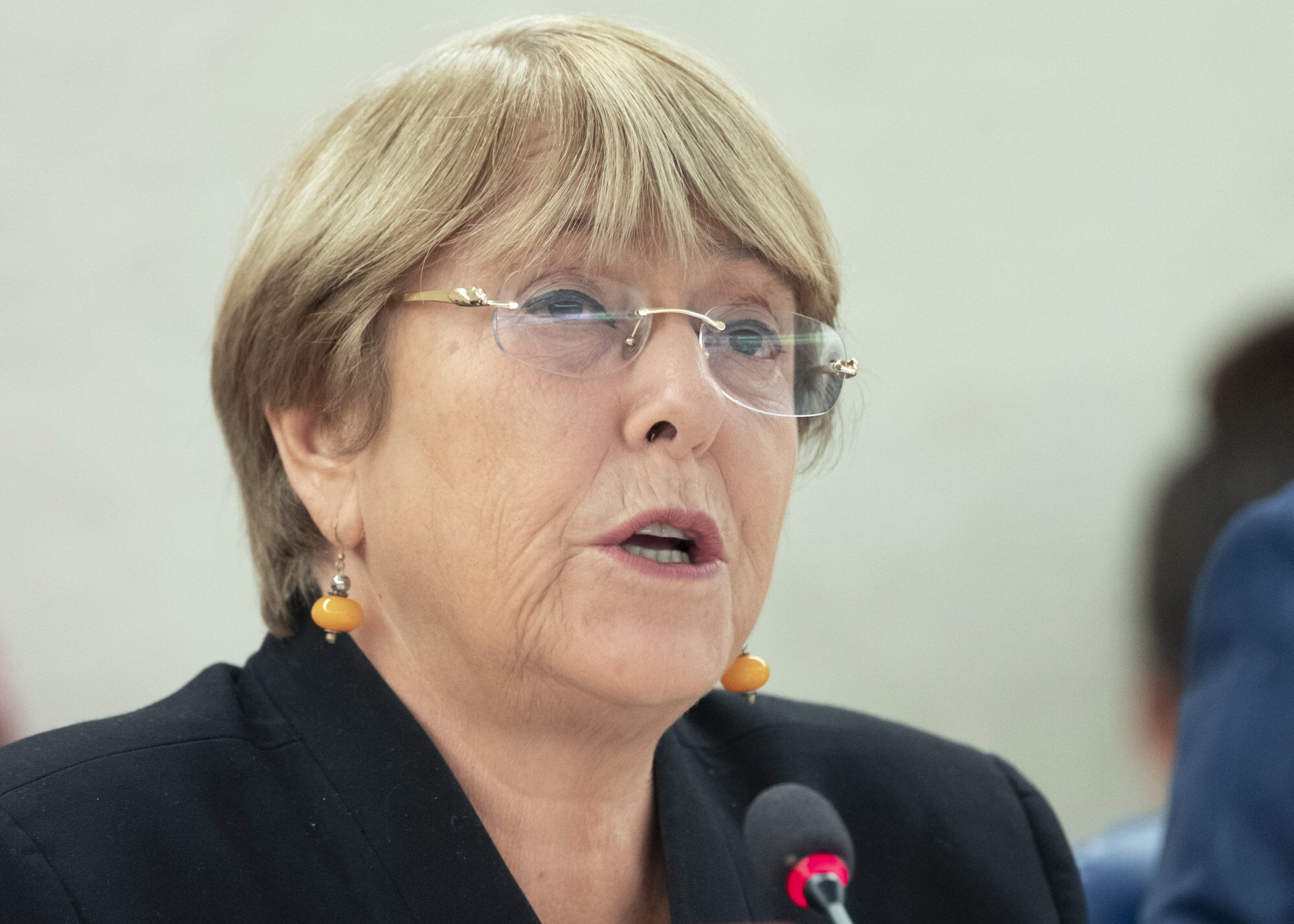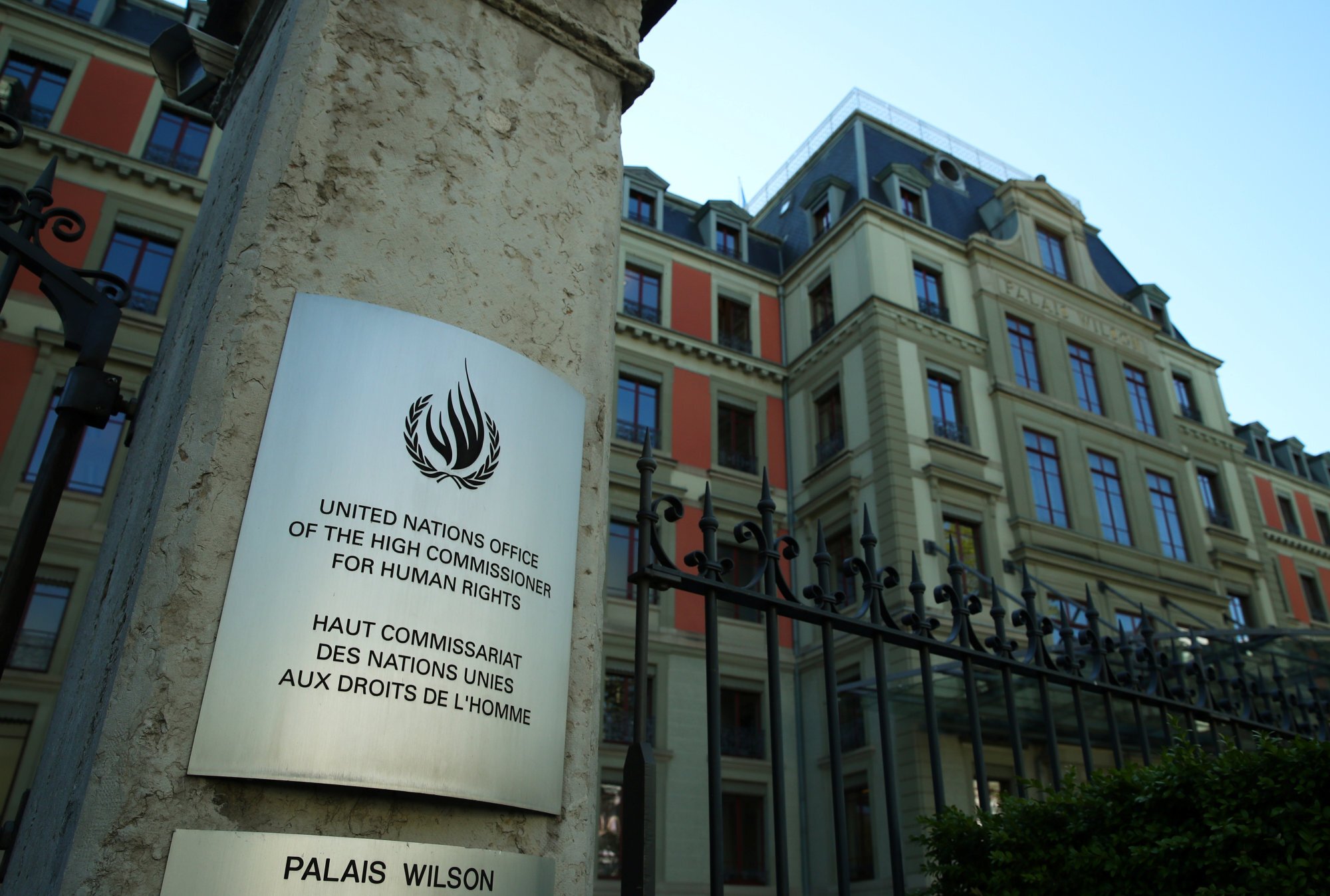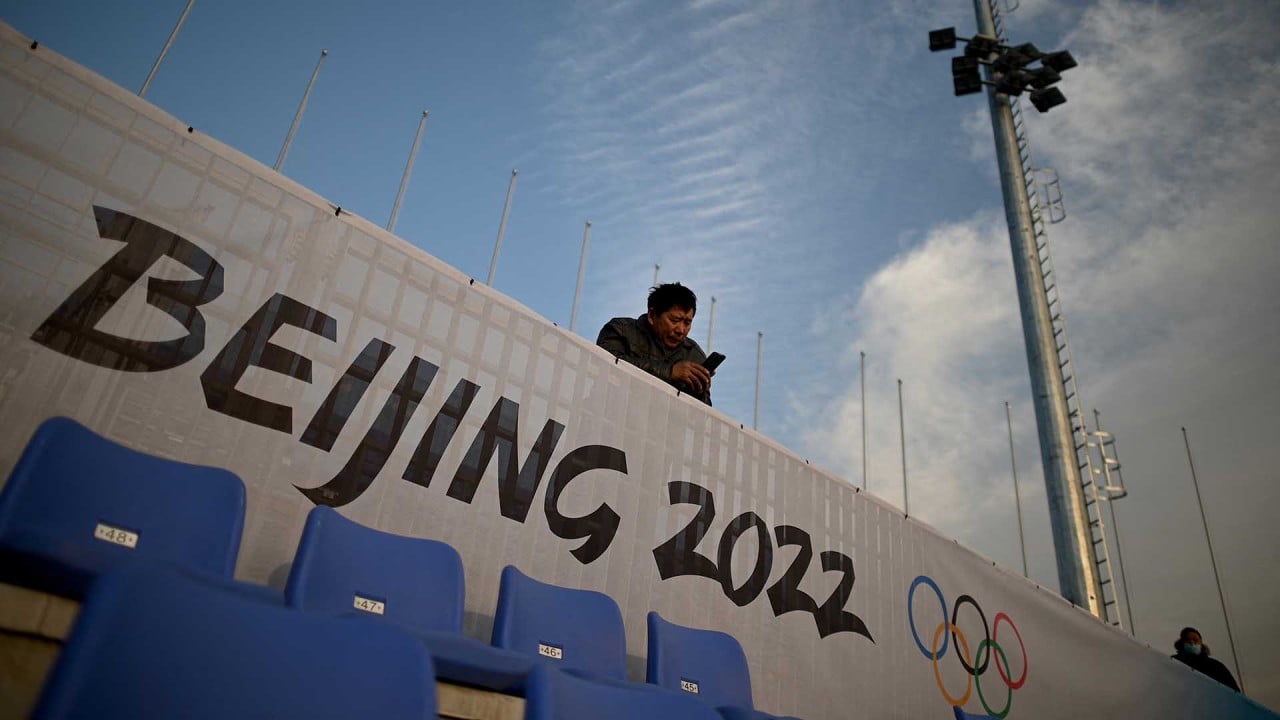
UN accused of colluding with China to delay Xinjiang human rights report until after Beijing Winter Olympics
- Leaked documents show China’s negotiating position over an inspection of Xinjiang has not changed for years, amid criticism of a ‘mutually convenient stalemate’
- The UN human rights commission says there is no timeline to release the report, which has been in the works for three years
The UN’s Office of the High Commissioner for Human Rights (OHCHR) said there was still no timeline to release its first ever report on the region, which has been in the works for three years and is believed to have been ready for publication for much of that time.
But documents obtained by the South China Morning Post suggested China’s negotiating position had not changed since 2019, raising questions as to the nature of the talks.
“I am afraid we don’t have an updated timeline yet for the publication of the report. However, I understand that it will not be ready for publication before the start of the Winter Olympics this Friday,” OHCHR spokeswoman Liz Throssell said.
The United States had pressured the UN to push it out before the opening ceremony on Friday, which will be attended by Secretary General António Guterres.
Bachelet, the UN’s high commissioner for human rights, has been negotiating with Beijing since September 2018 for a visit to Xinjiang, where some 1 million Uygurs are alleged to have been held in mass detention camps.
What to do when the UN human rights office may have violated human rights?
“It is important that such a visit be meaningful, with unsupervised access to a wide range of civil society actors and locations as well as high-level engagement with government officials. As the high commissioner has said, meaningful, unfettered access to the Xinjiang region is crucial,” Throssell added.
However, Beijing told the OHCHR that a visit should be “friendly” in nature and not framed as an investigation.
Furthermore, leaked documents raise questions about how productive negotiations have been, given that China’s baseline position remains the same as it was in 2019.
In a letter dated May 31, 2019, China’s permanent representative to the UN office in Geneva, Chen Xu, invited Bachelet “to visit China, including Beijing and Xinjiang Uygur autonomous region, from 15 to 22 June 2019”.
“I trust this visit will provide first-hand information in China’s efforts in the field of human rights, hence will benefit mutual understanding and cooperation between us,” Chen wrote.

According to the OHCHR’s charter, a “fact-finding mission”, such as the one Bachelet has sought, should be conducted on the terms of the delegation rather than the host nation.
It must guarantee “freedom of movement in the whole country”, as well as freedom of inquiry, including “access to all prisons, detention centres and places of interrogation”, “confidential and unsupervised contact with witnesses and other private persons”.
Emma Reilly, a former UN human rights officer turned whistle-blower, said the Chinese invitations in 2019 and 2022 promised “no more than a guided tour”.
“If they have been in negotiations for three years without any progress towards this ‘meaningful unfettered access’, isn’t it better in terms of the victims of these atrocities to accept that you’re not going to get what you wanted and release the report?” Reilly asked.
She described the apparent stand-off between the UN and China as a “mutually convenient stalemate”, saying there is no political appetite among her former bosses to annoy China. Reilly was fired by the UN in November after releasing evidence that the organisation was sharing the names of dissidents with the Chinese government.
The Chinese Mission to the UN in Geneva did not respond to requests for comment.
The last time a UN human rights chief visited Xinjiang was in 2005, at which point Beijing and the UN agreed a memorandum of understanding, according to contemporaneous documents obtained by the Post.
The OHCHR would not confirm whether a similar agreement was currently being negotiated, saying “the parameters of a possible visit are being discussed”.
China has long said officials are welcome to see the human rights situation in Xinjiang first-hand, but has then balked at their requests for access to certain places or individuals.
Multiple invitations have been extended to the European Union, but under similar conditions to those laid out to the UN. The EU has insisted that it should be able to meet with political prisoners in Xinjiang, so has rejected the invitations.
Lawmakers from UK, EU and other nations call for blacklists over Xinjiang
EU spokeswoman Nabila Massrali said she “expects China to allow meaningful access to Xinjiang to the UN high commissioner for human rights in order to address the human rights situation in the region, including through an independent, objective, impartial and transparent assessment”.
She said that the UN’s reporting would add to “existing information of widespread human rights violations and abuse occurring in Xinjiang”.
China denies that any such abuses have occurred.
John Fisher, Geneva director at Human Rights Watch, said a “so-called ‘friendly visit’ would be meaningless, and a slap in the face to the millions of victims of Beijing’s ruthless programme to suppress Uygur identity”.
“For years, China has dragged out access negotiations, but has never demonstrated any intention to allow the full independent investigation required. Now the clock has run out,” Fisher said.

Meanwhile, other leaked documents show China’s persistent efforts to stop the UN from publicly condemning or even commenting on allegations of rights abuses in Tibet and Xinjiang. They show Beijing moving to prevent UN officials from hosting or meeting with representatives from Taiwan, Tibet or Xinjiang.
In 2012, after the OHCHR published a condemnation of conditions in Tibet, China sent an excoriating response.
“Your office’s insistence on making the public statement on 2 November has on one hand demonstrated the misunderstanding, prejudice and even wrong perception of your office on Tibetan areas in China,” former Chinese Ambassador Liu Zhenmin wrote to Navanethem Pillay, who was then the UN human rights chief.
“On the other hand, it also shows our different mindsets in how to handle such issues. I am not in favour of public debate or confrontations and have been consistently advocating dialogue and cooperation,” continued Liu, who is now the UN’s undersecretary general for economic and social affairs.
Uygur leader urges pressure on China as he receives US award
In 2014, Chinese officials urged the UN to deny Uygur activists including Dolkun Isa access to the UN’s Human Rights Council, demanding that “no officials of the [United Nations Office at Geneva] meet these persons or accept any material they provide”.
“The presence of these persons in the council will not only harm the smooth conducting of the council business, but also pose a potential security threat to the Palais des Nations and participants of the HRC meetings,” they wrote.
Lawmakers across the West had been pushing for the UN to release its report before the Games, accusing Beijing of trying to launder its reputation through prestigious sporting events.
“As the world’s attention turns to Beijing for the Games, we cannot allow the Chinese government to ‘sports-wash’ over the atrocities taking place in the Xinjiang Region,” said Reinhard Bütikofer, the head of the European Parliament’s delegation to China.
A bipartisan group of US lawmakers wrote to Bachelet last month, reminding her that her office had promised the report was imminent in September 2021.
“We believe its publication would send an important reminder that no country can evade international scrutiny for engaging in serious human rights abuses,” they wrote.


